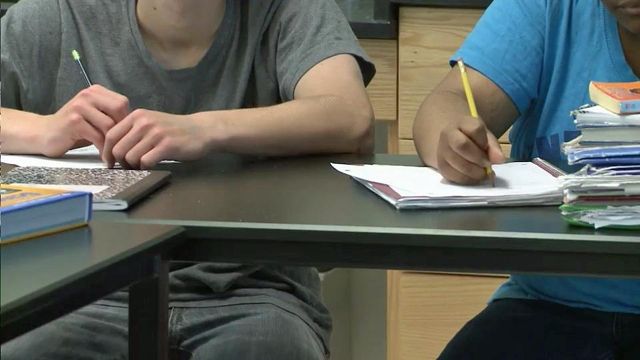Department of Education investigates WCPSS discrimination claims
Federal investigators visited the Wake County Public School System Tuesday to look into whether the district discriminates against African-American students in disciplinary matters.
Posted — UpdatedLocal advocates said they looked through statistics in Wake County schools and found discrimination, prompting federal officials to hold a community meeting to hear from students and parents first-hand.
“We welcome the representatives from the U.S. Department of Education who are visiting Wake County’s classrooms and visiting with staff and families,” said a statement from district spokeswoman Lisa Luten.
Several local groups filed a complaint against the school district with the U.S. Department of Education, claiming black students are suspended at rates that far outpace their percentage of the total student population.
Those who filed the complaint said that when they look at statistics school-by-school in Wake County, they see clear discrimination.
"African-American students are not a majority of the population. Often times, they are less than 25 percent of the student population, and yet the majority of those who are being suspended, expelled, or arrested," said Sanyu Gichie with the Youth Organizing Institute.
Between July 1, 2014, and June 30, 2015, 850 students were referred to the court system and 69 percent of those students were black. In contrast, 22 percent of students referred to the courts were white and 8 percent were Hispanic.
School officials noted that while black students make up a disproportionate percentage of suspended students, about 90 percent of black students enrolled in the district are never suspended. Additionally, nearly 99 percent of black students enrolled in the district were not referred to law enforcement during the 2014-2015 school year, which is the first year such records were kept, they said.
“The school system has reduced student suspensions by 34 percent in the past five years while emphasizing positive behaviors as part of its discipline programs,” Luten said.
At Tuesday night's meeting, nearly every person had a story of discrimination, including Cecilia Glenn, who spoke about her granddaughter, Abigail.
Glenn said that while in class one day, the 7-year-old got in trouble for a remark she made which Glenn thought could be easily handled.
"Her teacher wrote her up and sent her to the office," Glenn said. "It's not about a black and white thing. It's about being treated fair."
In other personal stories, the results were more severe.
"I have worked with kids as young as 5-years-old who have been suspended in Wake County," said Jen Story with Legal Aid North Carolina. "Just in the last few weeks, I am still hearing from parents and students who are being arrested for simple affray and disorderly conduct and these minor incidents."
Since the complaint was filed, Wake County school leaders have made moves to address the issue. Suspensions have been declining over the last five years and district leaders are working with suspension alternatives.
"I think any suspension is one too many suspensions. This is a national trend," said Wake County schools' Assistant Superintendent for Equity Affairs Rodney Trice.
• Credits
Copyright 2024 by Capitol Broadcasting Company. All rights reserved. This material may not be published, broadcast, rewritten or redistributed.





